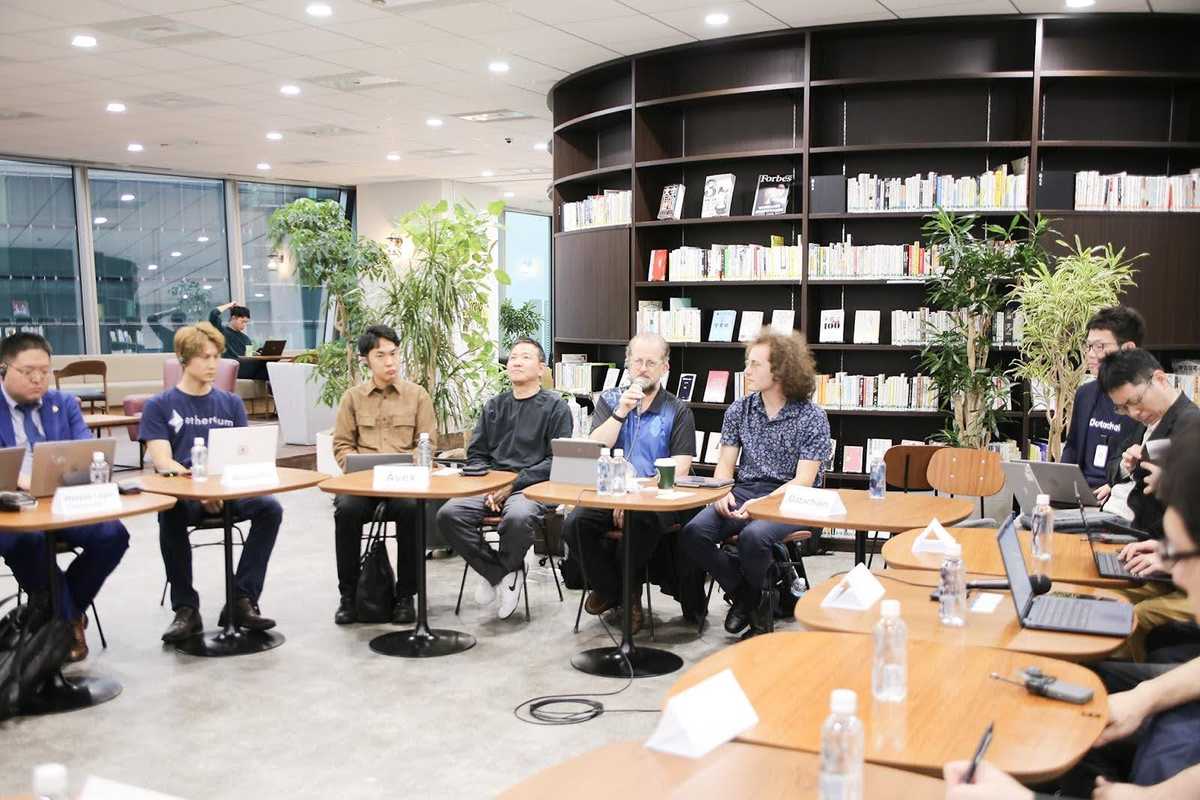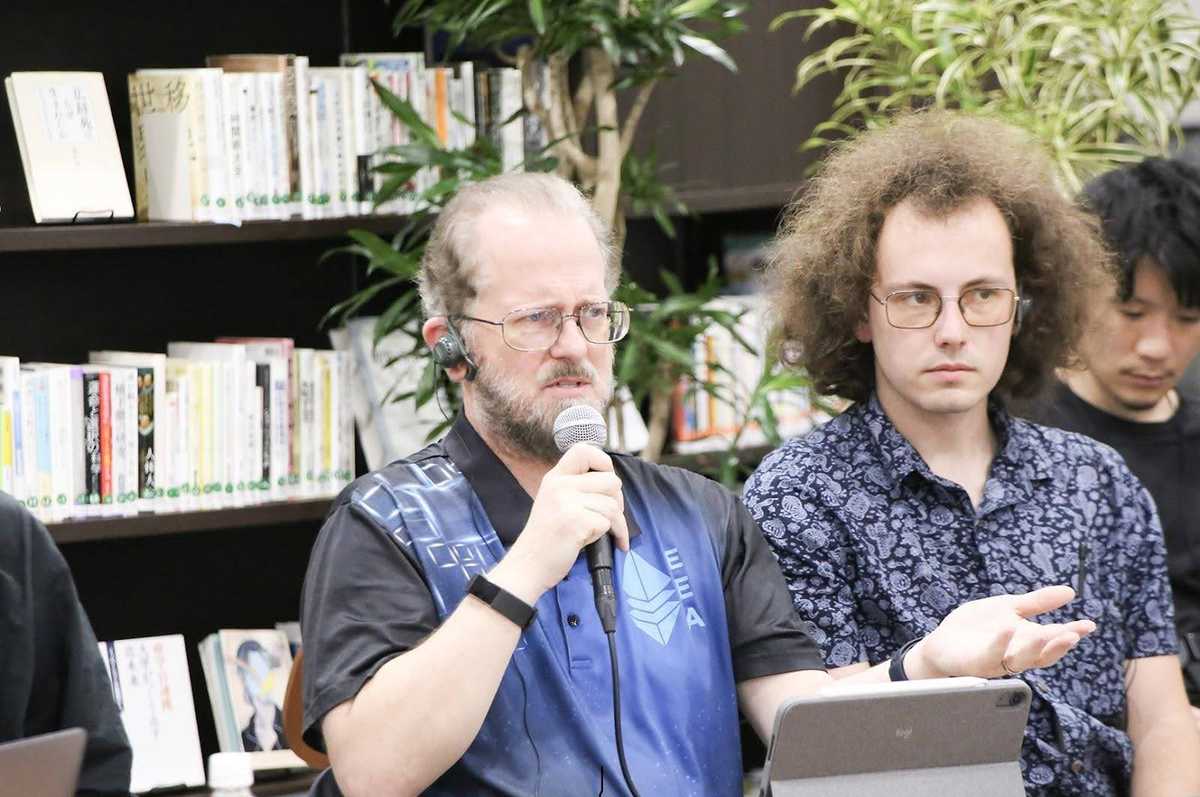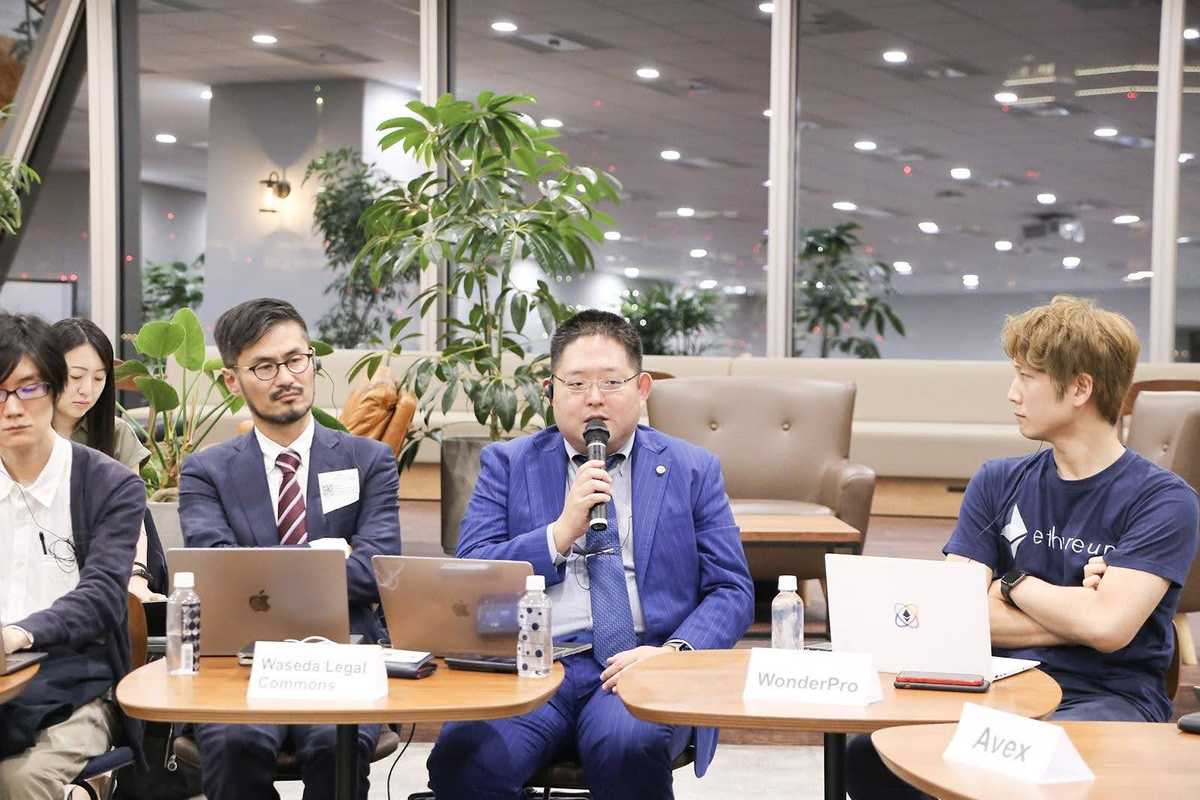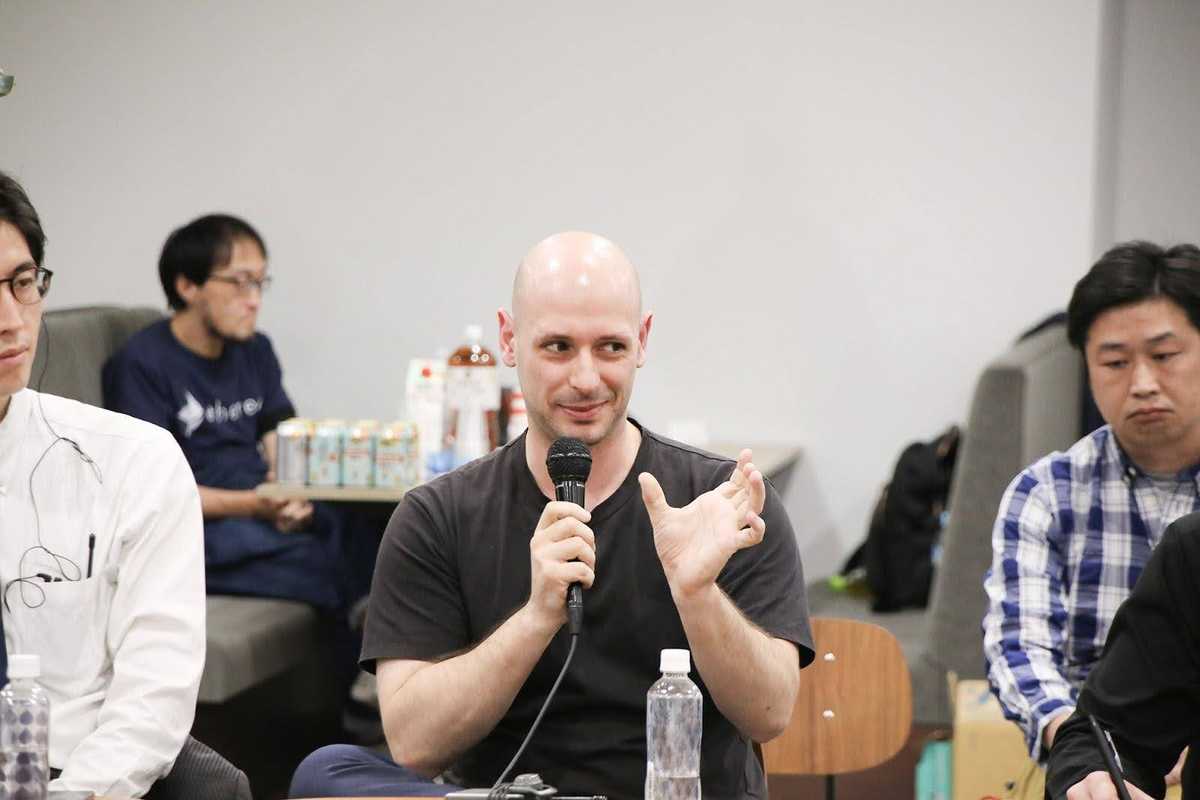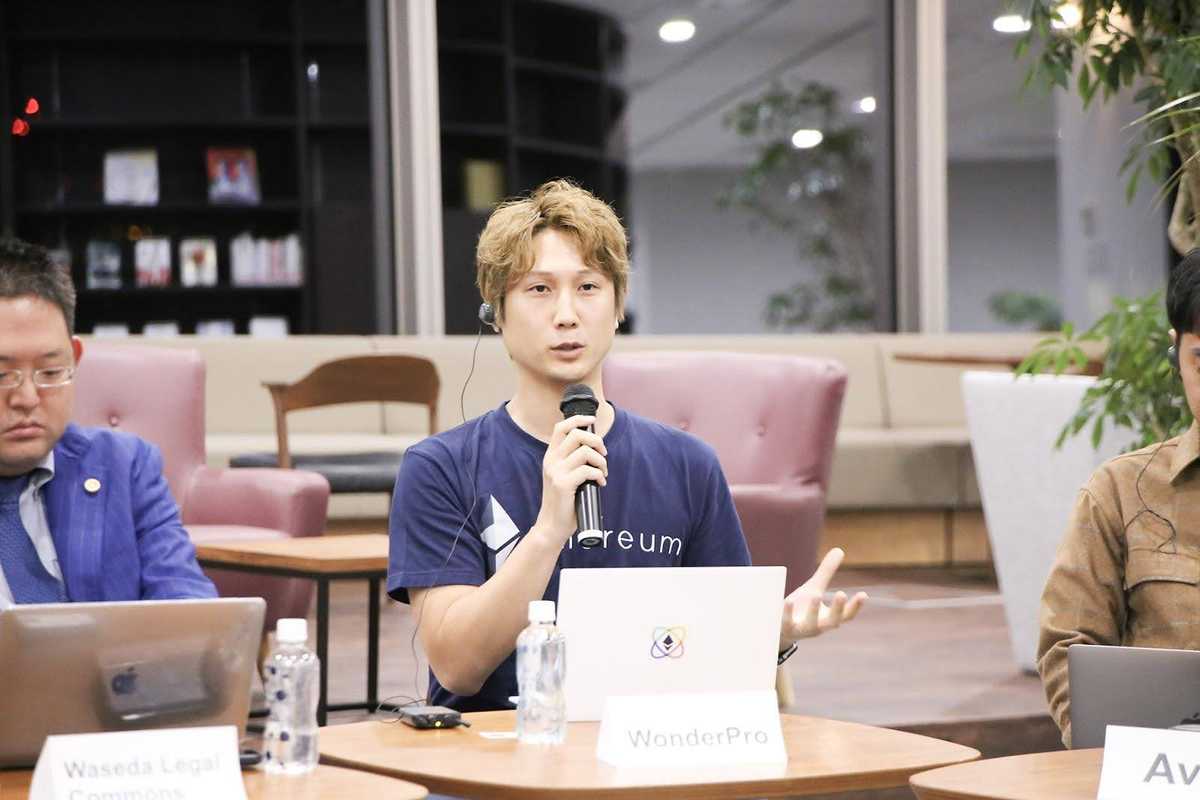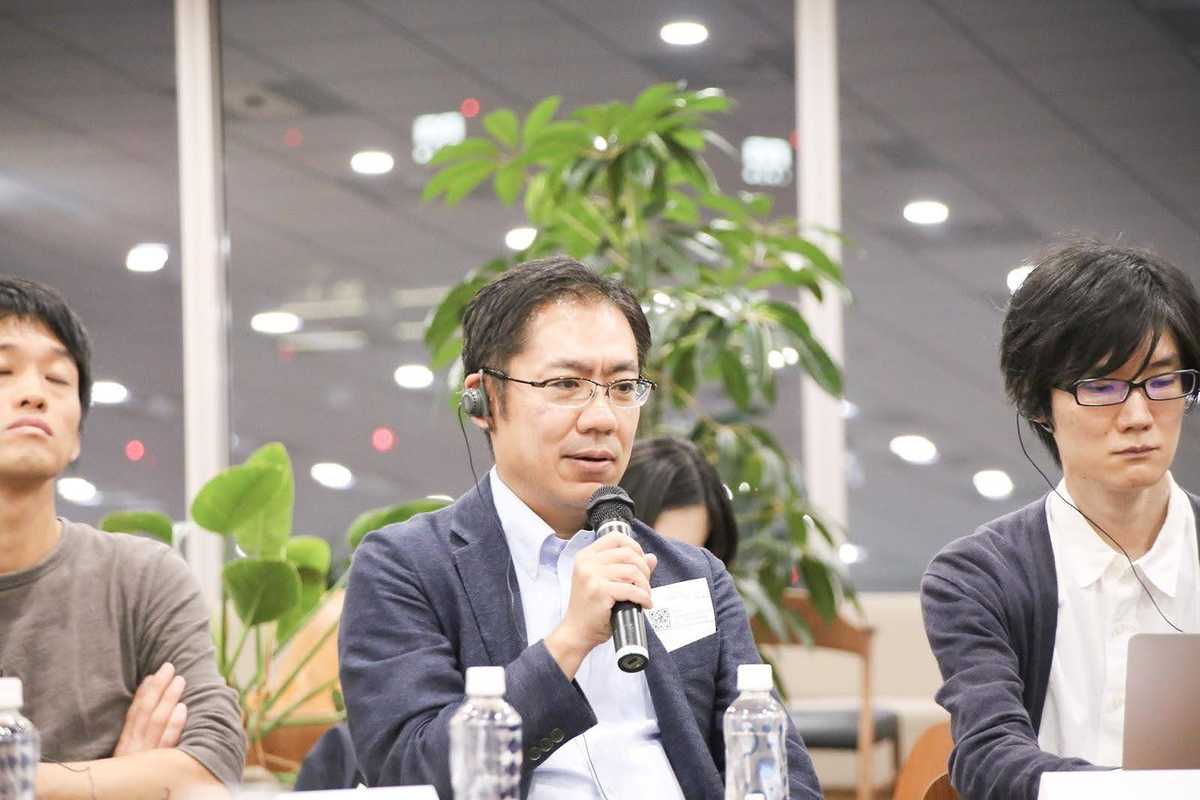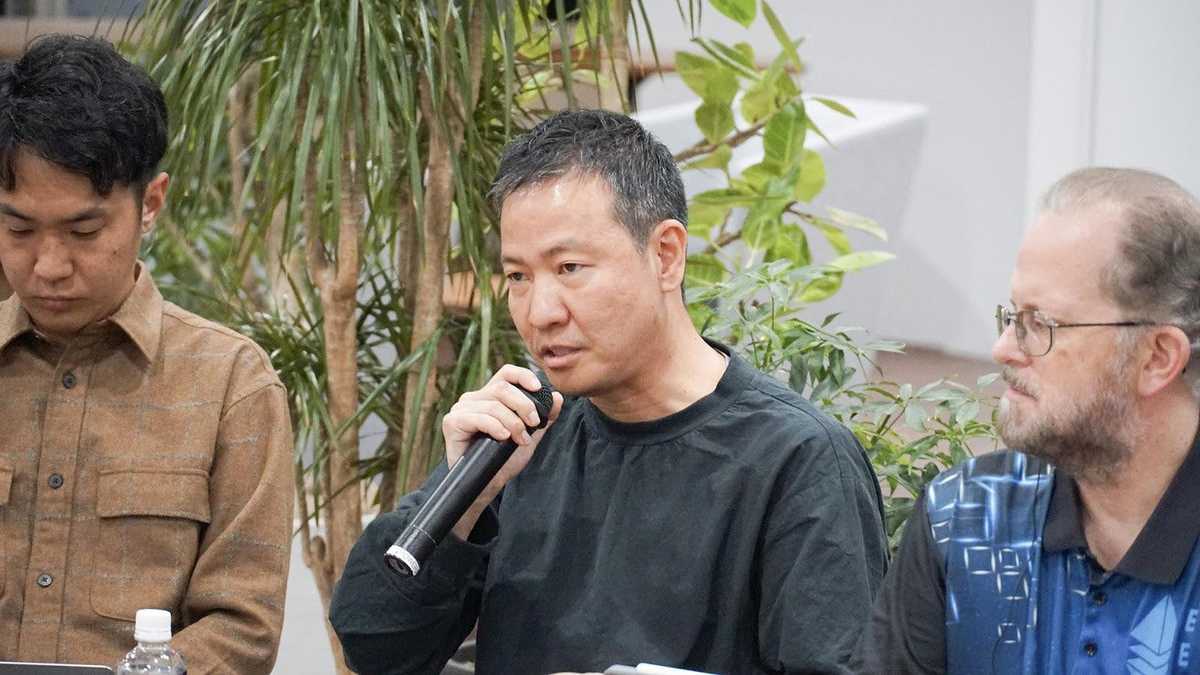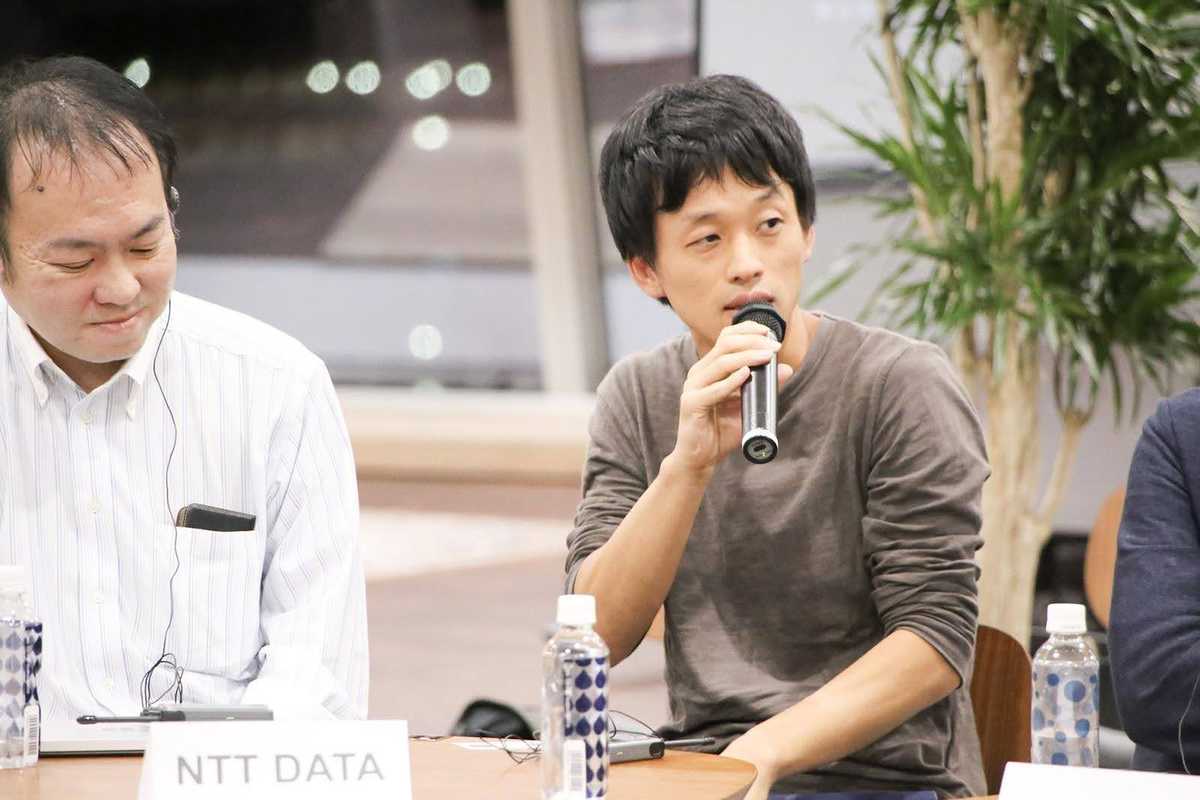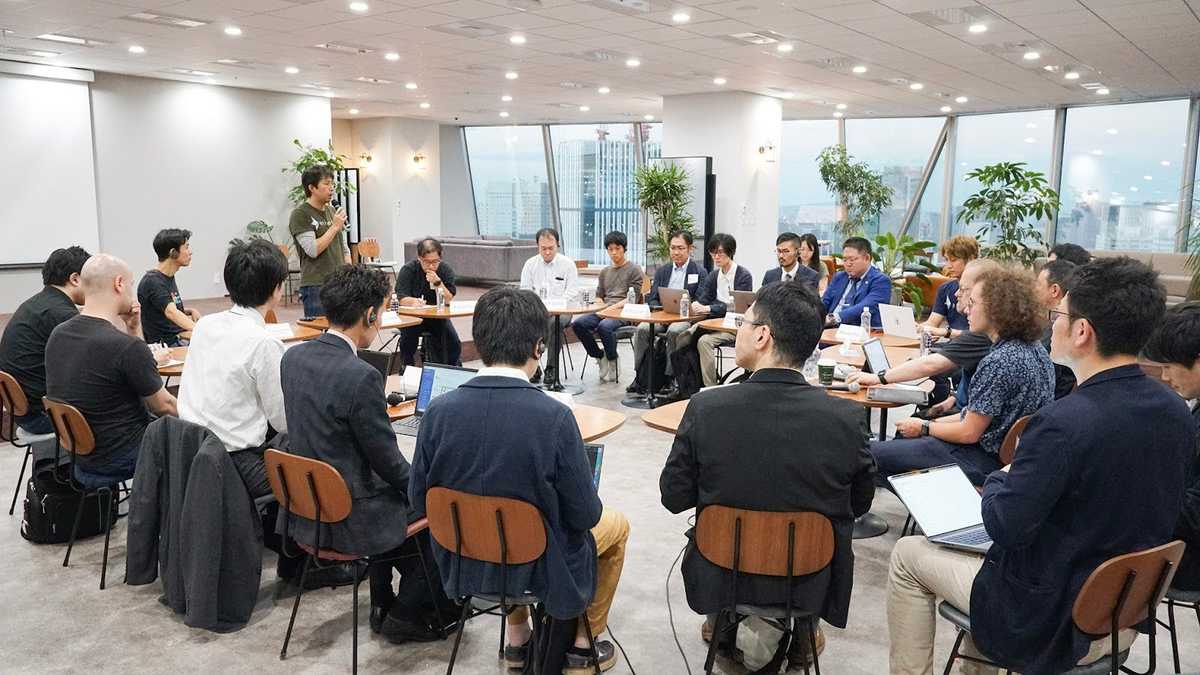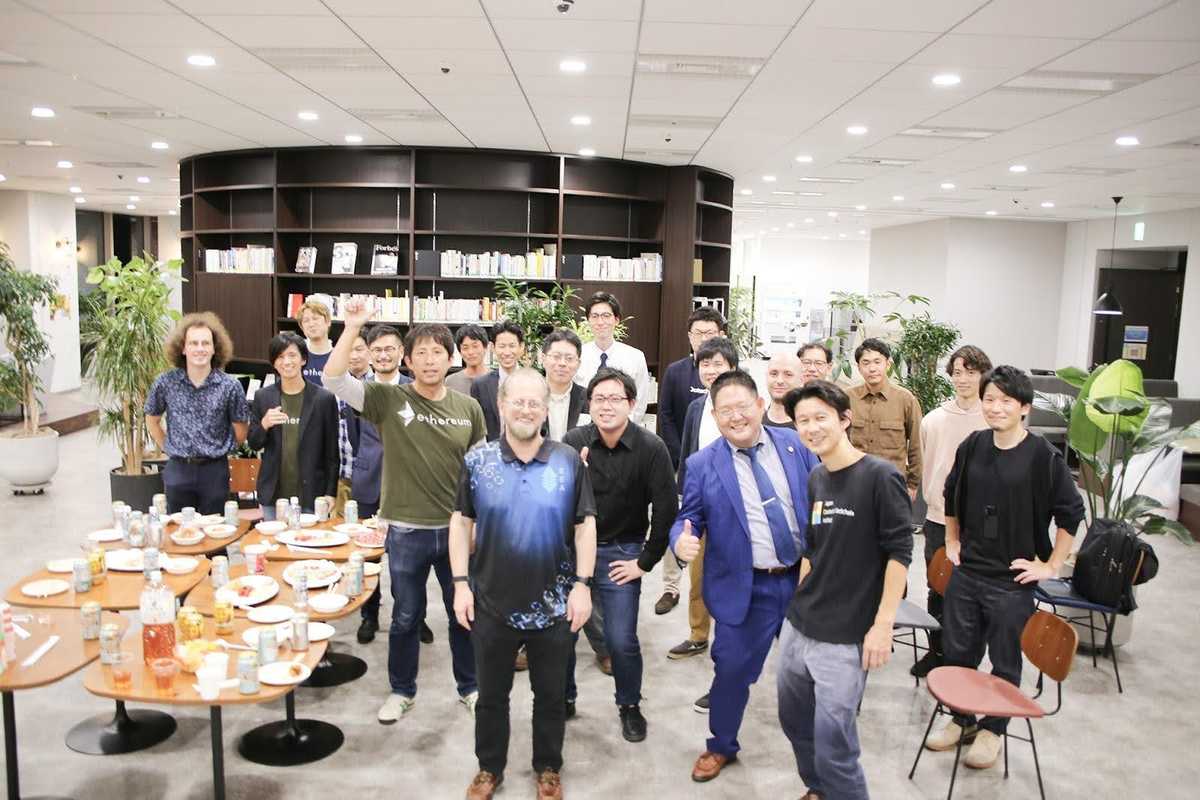The "Enterprise Ethereum Invitational Session" is an event focusing on the challenges and future possibilities of utilizing blockchain in business. -part 2-
Event Overview
In the Enterprise Ethereum Invitational Session held in October 2023, discussions were conducted on the themes of "Challenges in Business Utilization of Blockchain" and "Goals Pursued through the Use of Blockchain."
Many members who participated in the Enterprise Ethereum Stage held in April 2023 gathered, making it a highly meaningful discussion.
What goals are aimed for through the utilization of blockchain technology?
Ishii: In the first half, we discussed the challenges of utilizing blockchain technology for business, but the second topic is **what goals are aimed for through the utilization of blockchain technology**
This technology has undoubtedly changed the world. For example, in the United States, public telephones and internet cafes, which were ubiquitous two years ago, have disappeared due to the proliferation of mobile phones and Wi-Fi. What would be a clear indicator of success like this? In what state do you think Ethereum would be considered to have been fully adopted?
Dan: Signs of success, how the world will change for children, and the important things people need to understand for that. Let's start with an example.
Take the internet, for instance. Even if nobody can explain the workings and functionalities of the internet, people know they can use it to chat with others on TikTok or conduct banking from their homes. If you were to ask what would happen without the internet, most people would look concerned.
Now, here's a question: 20 years from now, will the world be better off using blockchain technology? Will there be major changes akin to the internet?
The second question is, what constitutes proof of success in reducing the risks of Web2-style platforms like Google, Facebook, or Twitter, where people sacrifice privacy?
I understand companies need a business model. However, each of us working within these companies might have ideas on how to make the world better. While some ideas, like dismantling all regulations or overthrowing the current financial system, might not be realistic, there are possibilities for change and improvement. Let's give two examples in response to these questions.
One answer could be that if a certain percentage of Fortune 500 companies adopt Ethereum, it could be deemed a success.
Another answer could focus on the decentralization of essential local services measurable at the national level. So, please share your thoughts on these points.
Executive Director of the Enterprise Ethereum Alliance. Renowned expert in web standardization. Collaborates with the EEA board, technical working groups, subcommittees, and member community to drive the pace of innovation and adoption of Ethereum. An action-oriented leader supporting the development of the blockchain ecosystem, serving as the ConsenSys Blockchain Standards Architect, and contributing to standardization efforts to enable enterprises to leverage the potential of blockchain. PhD in Computer Science. (Source)
Enterprise Ethereum Alliance Appoints Dr. Daniel Burnett as Executive Director - Enterprise Ethereum Alliance (entethalliance.org)
Ishii: The first question is what would be missed if Ethereum and blockchain were gone? The second question is whether new services or systems that don't exist today will emerge? Please explain the second question in more detail.
Dan: For instance, it's about the potential for new services or systems to emerge in areas such as healthcare, accommodation, real estate, utilities, electricity, water, etc. It's about the ability as individuals to create something new, to own and protect our own data, innovation ability, and being rewarded for that innovation.
Ultimately, this will also be used in ranking countries. Countries that are decentralized versus those that are not. This is a completely different example from Fortune 500 companies in terms of how the world is changing.
Inamura: The issue of personal information was raised. According to surveys, there's a reasonably high awareness of personal data protection in Japan. However, everyone easily gives away their personal information for services. This contradiction reflects the incompatibility with blockchain. Japanese people probably have a tendency to want someone else to manage their personal information, and they may not think about controlling their own data. Decentralized principles like Ethereum ensure that transaction parties are equal. Both parties engage in transactions assuming the same information or that the other party may not disclose information. While this is common in business dealings, it's not the case in consumer transactions, where there's a gap to be addressed, requiring centralized transactions.
In this context, transactions with relatively low hurdles and remaining challenges likely involve international transactions between companies.
As one indicator, I believe it would be interesting to see how well Ethereum-based mechanisms or collaborations for payment guarantees and remedies work in international trade. Particularly as a lawyer, my main job revolves around relief in case of accidents or preventing accidents. Since laws differ worldwide, issues of jurisdiction and arbitration arise. This often requires centralization to resolve disputes between equal transaction parties.
However, when purely engaged in business, it's the natural obligation to clearly indicate to the other party in a transaction. While it might be acceptable to admit a lack of understanding about the other party's situation, it's concerning if the arbitrator might be biased toward one party. This is where the attractiveness of smart contracts and payments within blockchain, especially Ethereum, is felt by international judges or arbitrators. It's intriguing to think that transaction terms and relief conditions could be controlled in the pro bono world rather than being solely rule-based.
Ito: Regarding the advancement of blockchain's societal implementation, the most crucial aspect would be the alliances formed in the financial sector. It's essential to see how alliances are established where cryptocurrency exchanges recognize Ethereum as a currency and exchange it for fiat currencies. The state where such alliances are formed is accepted naturally in the cryptocurrency industry, even though Japanese cryptocurrency customers may not necessarily hold wallets but only have accounts with cryptocurrency exchanges. They accept the state where alliances are formed in the cryptocurrency industry and consider it as one financial asset. Therefore, in the theme of the Enterprise Ethereum Alliance, I believe it's crucial to conduct hearings with various countries and industries.
In addition, considering how alliances can be formed in both industry sectors and globally, the cryptocurrency trading industry has achieved this as it is a nascent industry. However, discussing what other alliances can be formed, particularly within networks like the EEA, is important internationally. When this is achieved, it can be said that one of the initiatives of the EEA has succeeded.
Ishii: As Dan mentioned, for example, when top companies decide to do something in the cloud using servers, it's a matter of whether to use AWS or GCB. Conversely, if AWS or GCB were unavailable, development would be impossible, and there would be no alternative. In this way, how can Ethereum or blockchain become indispensable? It's a future where companies are talking and suddenly Ethereum becomes unavailable, leading to the question, "What do we do now?"
From the perspective of companies, there's an expectation, but it's not a necessity. Regarding currency, it's in a position similar to so-called alternative means. So, how can blockchain become as essential as air? I'd like to hear everyone's comments on this.
Technical Director at Square Enix Blockchain Entertainment Division. With a background of 10 years as a Software Engineer in industries such as industrial and energy, and 7 years as a Blockchain Engineer.
Martin: Currently, centralized systems are the quickest and highest-quality option when it comes to building innovative systems. From the perspective of developers, blockchain incurs excessively high development costs, while from the builder's perspective, using centralized open-ended systems is easier and more straightforward. I believe that once we can create innovation with blockchain, everyone will start using it.
Yonekura: I agree with Martin's opinion. When I actually worked with Ethereum currency, I found Ethereum Foundation's system to be incredibly impressive, but also very challenging. While they provide the code, it's still very difficult. I'm curious about how the Ethereum Foundation plans to increase developers among the general public.
Dan: It's clear that there's a lack of understanding among the general public about the value of Ethereum, and it's clear that we need to address this. In fact, I've heard from several groups that the terms and attitudes surrounding Ethereum's ecosystem and blockchain in general are very poor and not conducive to adoption. It took many years for companies to feel comfortable using cloud services. Whether it's Ethereum or anything else, it doesn't make sense for most companies to operate and maintain their own cloud server infrastructure with such technology.
There's no need for prior consent to the resolutions written in the tokens. The code represents what the actual dependencies are, and I think this was one of the wrong components of what we should be doing. Whether it's one of the most important things we should be doing next year remains to be seen, but it would also burden developers.
Ishii: For example, in games, if there were a platform like Ethereum that could be managed easily, deployed, and run autonomously without any hassle, everyone would naturally use it. Do you have any opinions on how to achieve this? Please share your test cases or ideal scenarios.
Sakamoto (Fujitsu) It would be ideal if large companies like Google and Facebook used blockchain in the systems managing clients, but in reality, it's difficult in the business world.
Ishii: If we try to manage IDs in a decentralized manner, then it would naturally be blockchain, indicating that there's no competing technology outside of blockchain.
Principal Researcher at Hitachi Research & Development Group, Service System Innovation Center. PhD. Joined Hitachi in 2000, specializing in research, development, commercialization, and societal implementation of biometric authentication, cryptographic techniques, and information security. In recent years, expanding research into digital identity and blockchain. Adjunct lecturer at the University of Tokyo, Visiting Associate Professor (2015-2020), ISO/IEC SC37 Expert, recipient of the Ichimura Industrial Award (2020), R&D 100 Awards (2020), NTT DOCOMO Mobile Science Award (2016), IPSJ Nagao Special Research Award (2014).
Takahashi: I'd like to discuss the worldview aimed at decentralized identities using our Hitachi system.
In the current blockchain system, when attempting to decentralize something, each person holding a key can exercise their rights, but because the keys are decentralized, the structure cannot control the entire system like a centralized one.
When it comes to including identity in the worldview, ultimately, I believe that the human factor must be decentralized and deeply involved. In other words, it's a little irresponsible to just push key management, decentralization rationale, and decentralized trust onto individuals. I want to create a system that ensures keys are uploaded to appropriate human bodies.
Currently, whether it's blockchain or web2, the user's access channels are devices such as smartphones or computers, so even though they appear to be decentralized, endpoints and key management are ultimately held by companies like Apple or Google.
What I'm personally working on is methods like fingerprint authentication or retinal scanning, where the body itself becomes the key. If this can be achieved, then one can access the system without relying on a device, prove one's identity with bodily autonomy, and execute transactions of one's assets with bodily signatures. I'm aiming for a worldview not just of decentralization but of inclusion. Even if someone, like a refugee, has had all their tools such as smartphones or IDs confiscated and is left with nothing, they can still prove who they are with just their body.
Dan: What would it take to call this a success?
Takahashi: It would be considered a success if people worldwide could participate in this web3 blockchain without needing a computer or smartphone, and could prove themselves to be who they are. This is what we aim to achieve globally.
Iwanaga: I think the innovation of blockchain is 99% about overcoming hurdles and 1% about possibilities, and if there's one thing, it's transparency. For example, putting money in a treasury and allowing everyone to see it is something that hasn't existed before. Money used to be managed by administrators. So, I think the concept of creating a common wallet for money and saving it together is something that hasn't existed before.
Regarding the potential of blockchain, I believe it's very compatible with things that don't benefit from a one-to-one relationship. For example, when it comes to preserving climate change, air, carbon dioxide, water, and so on, I think it's very compatible.
Seventy percent of Japan's land is covered by forests, but currently, there's a possibility of the government centrally cutting down all the cedar trees, creating a kind of lawless area. Blockchain can be applied to preserve forests by companies or individuals and gather money. It doesn't have to cross regions or borders, and it's very suitable for utilization where everyone benefits.
For example, there's an old lady at a liquor store who cleans the road. When it comes to who should receive compensation for that, there's a treasury for preservation. When the old lady presses it with her finger, it's biometrically authenticated, and money comes in from there. Protecting one's own mountains, protecting forests might become part of the business law of circulation, right?
It would be wonderful if it could go that far. However, in a business world where corporate proprietary interests are fundamental, it's difficult to fully utilize decentralized technology. We have shareholders, and we're under pressure to grow every quarter.
If there's a wonderful potential for blockchain, it might be in making the world better by having money go into treasure boxes that don't benefit from borders, or by having money go into boxes that people can't touch.
Maybe in a place where there are no devices or anything, we'll return to a state where we circulate money to improve nature.
Ishii: Recently, there has been a lot of attention on how companies can contribute to local communities, the planet, and climate issues, so I think it's wonderful.
Currently active as a member of the Blockchain CoE within the Technology Development Division of the NTT Data Technology Innovation Headquarters, focusing on areas such as finance and supply chain. Primarily involved in driving projects utilizing blockchain technology.
Matsuo: Business-to-Business (To B) businesses have traditionally thrived on monopolizing revenue streams, making the concept of decentralization inherently challenging. From the perspective of To B customers, there might be a sense of trying to harness blockchain because it's becoming popular, with a desire to understand it before the eventual arrival of To C applications.
In terms of directly indicating the proliferation of Ethereum, for instance, it might be said to have firmly established itself in the To C realm if the first app users install on their smartphones is MetaMask. I envisioned Ethereum serving as a hub connecting various virtual realms, and if it becomes indispensable, it could dictate consumer behavior.
Kawasaki: I believe a measure of blockchain's societal implementation lies in how much recovery there is in wallets or wallet-like entities. If everyone has a smartphone app, then we can say that blockchain has become widespread.
On this note, although it may sound somewhat historical, I believe that all rights will become increasingly fluid. Starting from the age of insurance, property laws were established, ownership emerged, followed by claims, and it's been evolving. The idea is that all rights and values are becoming fluid and exchangeable. As a lawyer, I foresee a future where everything becomes increasingly fluid. Blockchain seems to be the only means to implement this fluidity. While it's still unclear when and how this will happen and what role I'll play, or how it will connect to your businesses, the direction undoubtedly favors blockchain.
Martin: I don't think blockchain necessarily equates to all data being readable by everyone.
Although it's a tangent from entertainment, there was a multi-billion-euro fraud related to French nuclear power plants that I was involved in. Blockchain could be a solution to this. In the use case of blockchain, privacy becomes paramount. Companies involved in European nuclear power plants had a project to record transactions for traceability in supply chains, operations, and checks to prevent physical fraud through transactions. While this kind of project isn't mandatory, it holds significant value and is a critical use case at the national level. The general public cannot know what's happening in nuclear power plants, but implementing codes in the nuclear industry to prevent fraud through transactions on a blockchain would offer reassurance. Privacy protected by high-value transactions enables such use cases.
While evidence is on the blockchain, who shares that information and with whom is determined by the entity holding the information.
If it becomes the common backend of the world, everyone can maintain privacy while having evidence. With such functionality, new use cases will emerge. It may take time, especially in the industrial sector, but I believe it's ultimately achievable.
Ishii: It's clear that while it may take time to implement decentralized privacy controls, there's currently no other technology to compete with blockchain in this regard.
Ito: While cryptocurrency financial rates have declined, there has been a growing interest in gaming as the next major adoption trend since last year.
Instead of focusing on challenges, I'd like to hear about where you see the possibilities globally.
Hata: I'd like to discuss an example of what kind of world could be envisioned once blockchain becomes widespread. Earlier, I talked about private blockchains, but this applies similarly to public blockchains. We currently have a service called Digital Stickers, where customers who purchase stickers can decorate them.
Creating a common ground under the umbrella of blockchain, which matches the speed at which customers are thinking, is something unprecedented in the gaming world. In a regular console game, acquired items cannot lead to user-driven events because everything is packaged and controlled by the metadata and servers. However, with blockchain, we can create different areas managed by users and us on the chain, allowing for enjoyment, practice, and economic activity within those areas. When events occur, the floor price we provide on the marketplace increases. Instead of users becoming pessimistic about the floor price dropping, we adjust from the perspective of raising it, and this daily adjustment, I think, is a case made possible by blockchain.
Dan: I mentioned earlier that there's no need for permission or pre-arrangements like pre-partnership contracts to create something. If we consider airline mileage miles, it seems that airlines need to have individual partnership contracts with partners you can hold or partners you can hold for a month, but one of the benefits of this kind of technology is that it can create a more open marketplace by using blockchain or NFTs, regardless of whether users use miles or not. We want to capture all the value that customers create using what I've created, but often, opening up leads to ultimately more value. There's no need to build partnerships. There's no need to get permission from someone to create something new.
Obviously, there are important regulations for regulatory authorities to protect individuals, but I think this kind of innovation is a great example of building and benefiting from it.
Games are a good example of this kind of innovation. For example, anywhere there is a community like TikTok, there is an individual community. The community is why the lens appeared. eBay's idea is that you've worked to maintain a social infrastructure that would never have happened if you weren't there, because you're valuable in it, so if you think about how things are valuable internally, I think there's an opportunity. Previously private and personal things are often no longer provided, but I think there's an opportunity when you think about what value it has for you.
Martin: Allowing users to manipulate games also carries the risk of reducing the fun of the game, so it's a delicate balance and a challenge for entertainment creators to consider various possibilities.
Ishii: Yes, the most powerful attraction and characteristic of blockchain is that there is no boundary between users and companies, and it's like a system where they can automatically collaborate. There's a dilemma about the boundaries between users and creators, even if it wasn't intended from the beginning of blockchain games, and it can seem malicious when viewed objectively.
Do you have any other thoughts on the potential of blockchain?
Ishii Thank you, everyone, for the discussion. Dan, please go ahead.
Dan: I'll just say thank you to everyone who participated here. It's very helpful to hear directly about the real challenges you're facing. Also, if there are opportunities for conferences, it will be an opportunity to hear things you didn't know about or different opinions about why you want to use blockchain in the world and the challenges you face.
I hope it will lead to truly great results in the future, and I hope that in 20 or 30 years, people will be using blockchain in their daily lives, and they will be surprised if they use other methods. Are you sending letters on paper when there's the internet? Like that.
I hope at least one or two of us will reach that future. Thank you for your valuable time today.
